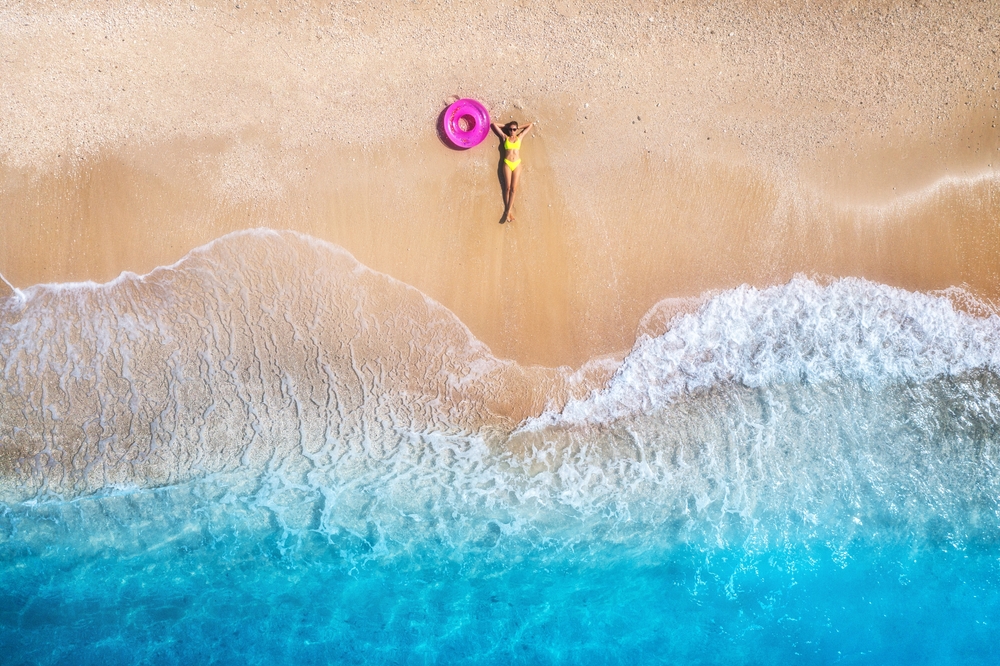
Why Are People So Attracted to Water? Exploring the Fascination and Benefits
American writer and activist Rebecca Solnit once described blue as “the color of the place where you are not.” In the context of sparkling ocean horizons or cloudless summer skies, you could add that it’s where many of us want to be—especially when water is involved.
Whether we’re talking about the Caribbean Sea, alpine lakes and rivers, or a simple fountain in a park, there’s something magnetic about water. The human psyche, generally speaking, is attracted to it.
Just consider the trend of cities: many are built around rivers or oceans. Likewise, you can bet that water is a dominant theme on almost every list of top vacation destinations and experiences.
Some limited research suggests that not only is it practical and important to human survival, but water also attracts people, captures our attention, and influences our behavior in some unexpected ways.
This psychological connection seems quite ancient and primal. An ecologist, Wallace J. Nichols, even wrote a 2014 bestseller. Blue mind, which explores this idea.
A basic human need
For starters, let’s state the obvious: unless you’re an AI system reading this story, you’re mostly made of water.
By weight, estimates suggest that approx 60 percent of the typical adult body is H20.
Because of this, most people can only survive a few days without consuming the wet stuff. To meet this need, our ancient ancestors (and their ancient cousins before them, down to fish) probably lived or died based on their ability to find a clean drinking source.
In some events and circumstances, a small trickle of spring would be sufficient. Larger pools of fresh water, of course, provide a constant, reliable supply that supports other aspects of human civilization as well.
So it’s no wonder why human camps, fortresses and villages – which often become large cities – are anchored to the water.
Read more: 5 ancient societies that collapsed when the water dried up
Reverence for water
In 2010, a team of British researchers studied human preference for water in both natural and built environmental scenes.
That is, they assess how people respond to both images and real physical spaces based on the presence or absence (and amount) of water. This study revealed that both natural and constructed water scenes were associated with higher preferences, greater positive affect, and higher perceived restorative properties than those without them.
The researchers speculate that the long-term evolutionary need is related to “water veneration,” adding that “early humans attracted to aquatic environments with fresh water supplies may have been more likely to survive than those attracted to non-aquatic environments .”
Why “Glossy” lures us
By the way, in 2013 another team of researchers published fascinating study revolving around why people prefer shiny textures and visuals.
Although the research focused on consumer behavior and the marketing of items such as jewelry and handbags, these findings also pointed the team toward water—as it relates to evolutionary psychology.
They concluded that our innate need for fresh water, which often has a shiny, reflective sheen, may explain why we like shiny things. Or to put it another way: people like shiny textures because they remind them of moisture.
Among the evidence, one of the tests in their study involved feeding some participants saltine crackers while they rated how much they liked certain glossy images presented to them. A control group also responded to the same images without eating salty crackers.
As predicted, those who ate the crackers — and got thirstier — seemed more attracted to the shiny images. “When people are thirsty, their preference for gloss increases,” the researchers wrote in the study.
Real estate and water
Beyond human physiology, the thirst for water also seems to permeate preferences for real estate and commercial development (not to mention commodities selections in modern investment portfolios).
As a simple demonstration of this, just try searching for Airbnb listings in a city near the ocean or a large lake and notice the rental prices. In many cases, you’ll see higher prices for any accommodation that advertises a waterfront view.
In 2000, Jocke Lutik, a researcher in economics and social sciences, published some hard data behind this trend in the Netherlands.
Specifically, she evaluated almost 3,000 house sales in eight cities or regions in the Netherlands and assessed the effect that environmental features have on price.
Overall, the study found that a home with a water view correlated with an 8 to 10 percent increase in sales price.
Interestingly, in some cases this increase jumped to 28 percent when combined with a garden overlooking a large lake. This is perhaps consistent with other research suggesting that people are attracted to lush and green environments because it also indicates an abundance of water.
Read more: Yes, people are already trading and investing in water as a commodity

